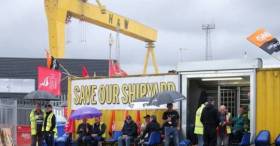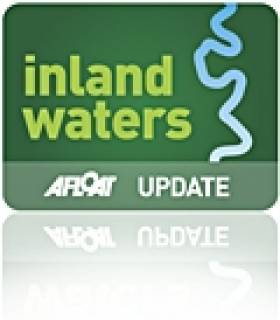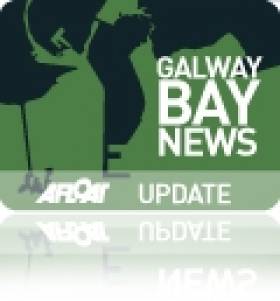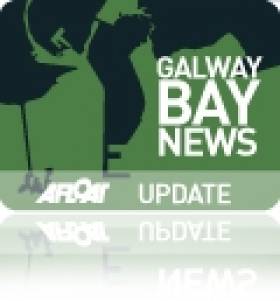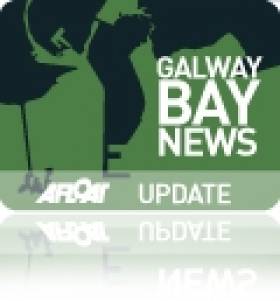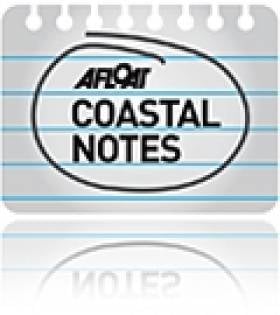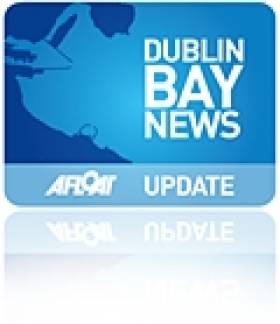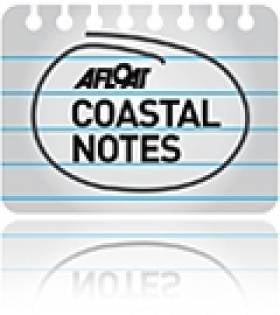Displaying items by tag: protest
Workers at Harland & Wolff have seen a deluge of support - from donations of suncream and food to performances by local celebrities.
As the Belfast Telegraph reports, the workforce continue their occupation of the historic shipyard even as the firm is placed into administration, there has been a steady stream of supporters arriving with donations and words of encouragement.
Newry singer Tommy Sands donned a Harland & Wolff cap as he performed a number of songs at the gates of the shipyard yesterday, including one he had written for the workers.
Unite shop steward and Harland & Wolff steel worker Joe Passmore thanked Mr Sands, saying his performance had made the hairs on the back of his neck stand up.
"Fantastic, I'm sure every shipyard worker here had the same feeling, I know you did actually," he said.
More can be read here on the story of the shipyard which as previously reported drew calls for it to be nationalised.
Boat Rally Against Dun Laoghaire Cruise Berth Tomorrow
#CruiseBerth - Royal St George Yacht Club members will host a boat rally in Dun Laoghaire Harbour tomorrow Saturday 10 October at 1pm in support of the People's Rally against cruise liner berth proposals taking place at the same time at the People's Park.
Club members are called to meet with their boas at the harbour mouth for one hour, with the intention of massing a flotilla of boats in the shape and size of the proposed 435-metre cruise pier, which critics say could split the south Dublin harbour in two and bring to an end generations of harbour sailing.
The fleet will be chaperoned, choreographed and photographed on the day by Royal St George club members who will assist in club ribs on VHF channel 72.
The protest takes place just days before the first official oral hearing into the cruise berth plans, which have already faced more than 150 objections.
Man On Raft Protests Kilkenny River Bridge Scheme
#Kilkenny - A Kilkenny man opposed the construction of a new road bridge over the River Nore in the city is entering the second day of his on-the-water protest, according to TheJournal.ie.
The protestor has erected a tent on his makeshift raft emblazoned with the words 'No CAS', in reference to the new Central Access Scheme for the city that some locals fear will bring more traffic into the medieval centre.
Yesterday the anonymous protestor told the same website that he launched his raft in an effort to obstruct preparatory works for the bridge scheme and provide a rallying point for other protestors to rally around.
Works were previously halted last week in the face of demonstrations, with some protestors entering the water by canoe to get in the way of construction workers.
TheJournal.ie has more on the story HERE.
Greenpeace Disrupts Yacht Backed By Russian Oil Giant
#Protest - Greenpeace protestors got up close and personal with a yacht backed by Russia's state oil giant competing in last weekend's Barcolana Regatta in Trieste, Italy.
A photo posted on the Greenpeace International Facebook page shows a RIB carrying a number of protestors right up alongside the Esimit Europa, bearing a banner that reads 'Get Out Of The Arctic' and the hashtag #FreeTheArctic30.
The slogan and hashtag make reference to both the yacht's main sponsor, Russian state-controlled energy giant Gazprom, and the 30 Greenpeace members arrested last month by Russian authorities while attempting to board a Gazprom oil platform in the Arctic.
The Guardian reports that the so-called 'Arctic 30' have been charged with piracy - an outcome described as "irrational, absurd and an outrage" by the environmental action group - and that German Chancellor Angela Merkel has expressed her concerns to Russian President Vladimir Putin.
In an official statement on Greenpeace's disruption of the regatta, Esimit Europa representatives said they were "very sorry that the 45th Barcolana Regatta was hurt by the events that took place on the second buoy and later on at the original finish line.
"We felt endangered. Our goal was only to provide our guests and staff a safe passage to the harbour.
"We would also like to thank the Italian police authorities and the Guardia di Finanza for their intervention at protecting the sailing field of the Esimit Europa 2 yacht and contribution to its safe passage towards the harbour."
Groups Appeal For Clarity Over Galway Bay Fish Farm Plans
#FishFarm - Groups opposed to the controversial deep-sea fish farm in Galway Bay have written to TDs asking them to bring clarity to the growing conflict over the proposals.
As the Southern Star reports, the groups have asked for a review of the current licensing requirements for aquaculture schemes to ensure that the process is transparent and open to independent review - amid news that both local TDs and State agencies are squabbling over the issue.
"To have a single minister responsible for all these stages of an industry that has such serious pollution issues associated with it, as well as the potential to devastate valuable salmon and sea trout stocks, is inappropriate and open to abuse," argues Alec O'Donovan of Save Bantry Bay, one of the groups in an alliance that include local tourism, angling and environmental interests.
Group chairman Kieran O'Shea singled out for criticism the Department of the Marine's apparent determination to push forward with Bord Iascaigh Mhara's (BIM) fish farm plans in spite of a moratorium on further development of salmon farming three years ago at EU level.
"This not only makes a mockery of EU law but highlights a worrying lack of concern for the environment," said O'Shea.
Meanwhile, another opposition group has spoken out over a letter of support for the fish farm plans by Irish seafood producers and other businesses.
According to the Galway Independent, Brian Curran Galway Bay Against Salmon Cages (GBASC) claimed the letter - signed by 43 firms, only six of which are directly involved in food production in Galway - was a "set-up".
A spokesperson for BIM dismissed Curran's comments as being "in very poor taste" in seeking "to undermine the intentions or credibility of anyone who would go out of their way to place their support for the proposal 'on the record'."
As previously reported on Afloat.ie, the 500-hectare development off Inis Óirr in the Aran Islands would be the largest of its kind in Europe.
Thousands Attend Fish Farm Protest in Galway
#FishFarm - As many as 2,000 people attended the protest in Galway against the proposed deep sea fish farm off the Aran Islands at the weekend.
As previously reported on Afloat.ie, the demonstration was organised by Galway Bay Against Salmon Cages on Saturday 2 March in opposition to the 500-hectare organic salmon farm proposed by Bord Iascaigh Mhara (BIM).
Among the speakers on the day, as The Irish Times reports, was Icelandic salmon conservationist Orri Vigfusson, who claimed the fish farm could interfere with the migration of salmon smolts from both Ireland and the rest of Europe.
GBASC vice-chairman Tommy Casserly also spoke, referring to the fish farm project as "a toxic cloud containing seven million caged salmon with all those faeces and chemicals and lice, between the Atlantic and 15,000 wild salmon which come through these waters".
Later in the day a delegation attempted to hand a letter of protest to BIM staff attending the Skipper Expo in the city, but said it was refused.
If the Galway Bay fish farm project gets the go-ahead, it would be the largest aquaculture facility of its type in Europe and would double the State's production rate of organic salmon.
The Irish Times has more on the story HERE.
Groups To Protest Marine Minister's Office Over Galway Bay Salmon Farm
#FishFarm - A group opposed to the Galway Bay deep-sea salmon farm proposals has announced it will protest the constituency office of Marine Minister Simon Coveney this Saturday 15 December.
In a statement to the media, No Salmon Farms At Sea (NSFAS) said that it will join likeminded groups Save Bantry Bay, Save Galway Bay, FISSTA and Friends of the Irish Environment, along with other local and national organisations, in a protest march through Carrigaline, Co Cork to Minister Coveney's office in the town, where invited speakers will address the crowd to express their opposition to the fish farm.
As previously reported on Afloat.ie, the 15,000-tonne deep-sea organic salmon farm would be located on a 500-hectare site in Galway Bay off Inis Oirr in the Aran Islands, and would be one of the largest projects of its kind in Europe, projected to be worth more than €100 million annually for the economy, according to Bord Iascaigh Mhara (BIM).
But the proposals have raised the ire of local anglers and conservationists who fear the development could have a negative impact on wild salmon numbers in the area.
"Minister Coveney has been a strong supporter of the aquaculture industry and we intend to let him know that his support is misguided and will result in catastrophe not only for our stocks of wild atlantic salmon and sea trout, but also for the communities and local businesses that depend on their very existence," said NSFAS.
The statement also cited the recent international study involving experts from Inland Fisheries Ireland which concluded that 39% of all young salmon mortalities are directly attributable to sea lice in areas where salmon farming takes place.
It added: "The highly inflated number of jobs, which BIM claim will be created, will be far outweighed by the number of jobs lost in areas where no other industry exists apart from that in tourism...
We have a world class sport fishery here in Ireland and our outwardly projected clean environment is one of our greatest assets. However it is fragile and will be destroyed if the salmon farming industry is developed further.
"Anglers and conservationists will do everything in their power to prevent any further destruction to our environment and already declining wild salmon and sea trout stocks."
Meanwhile, in today's Irish Times, angling correspondent Derek Evans writes that "anglers, stakeholders, hoteliers, restaurateurs, islanders and west coast citizens are 'up in arms' and rallying in large numbers in opposition" to what he describes as "this outrageous proposal".
He also backtracked on his previous claim about the location of the deep-sea farm as "a step in the right direction", explaining that he was contacted by a man living on Inis Oirr who said the location for the new fish farm is just "one land mile" opposite the beach, posing a threat to its tourism assets.
The Irish Times has much more on the story HERE.
Dolphin Group Comments on Dalkey Island Prospect
#DALKEY ISLAND PROSPECT - The Irish Whale and Dolphin Group (IWDG) has joined the chorus of opposition to the proposed oil and gas exploration off Dalkey Island in Co Dublin.
As previously reported on Afloat.ie, Providence Resources has applied for a foreshore licence to search for oil or gas about 6km out to sea on the Kish Bank Basin.
But the prospect has provoked a split in the local community over the potential risks and benefits, with many calling for a public enquiry into the licence before it is granted.
This evening an urgent meeting in Dun Laoghaire will address the public's concerns, which have been echoed by the IWDG.
"The Kish Bank and adjacent waters are important for cetaceans," said the group in a statement. "In addition, sightings of bottlenose dolphins have increased dramatically in the area following the presence of a group of three individuals since August 2010."
The IWDG is concerned about the potential effects on dolphins and porpoises that "could due to noise generated from the drilling process", noting that "there is little published data on the intensity and effects of sound generated by drilling".
Protest group Protect Our Coast has launched a online petition against the Dalkey Island Prospect citing concerns over the proximity of the drilling area to the mainland as well as the Special Protection Area of Dalkey Island, which is a haven for marine wildlife.
- Irish Whale and Dolphin Group
- IWDG
- Dalkey Island Prospect
- Coastal Notes
- Dalkey Island
- Dublin
- oil and gas
- exploration
- drilling
- Providence Resources
- foreshore licence
- Kish Bank Basin
- community
- Dun Laoghaire
- bottlenose dolphins
- Porpoises
- Cetaceans
- noise
- sound
- Protect Our Coast
- protest
- petition
- Special Protection Area
- marine wildlife
DCC Votes Tonight on Clontarf Flood Defences
#DUBLIN BAY NEWS - BreakingNews.ie reports that Dublin City Councillors will vote tonight on whether to give the green light to the controversial flood defence plan for Clontarf.
Thousands of people have held protests in the north Dublin suburb over recent weeks to show their opposition to the plan, which involves mounds or walls up to and above 7ft high, arguing that the council did not allow for any public consultation.
As previously reported on Afloat.ie, the Irish Sailing Association has urged DCC to defer the vote, which has also faced strong opposition from local business owners.
Schoolkids Urge Stormont to Save NI's Coastline
Hundreds of schoolchildren protested at Stormont last week to call for new laws to protect Northern Ireland's coastal waters, the Belfast Telegraph reports.
The group handed a petition with 4,000 signatures to Environment Minister Alex Attwood urging the introduction of a Marine Bill which would provide special marine conservation zones and restrict harmful maritime activities.
At present, Northern Ireland is the only part of the UK with no legal safeguards for the protection of its coastline.
The Northern Ireland Marine Task Force, which is heading the campaign, says "over-reaching legislation" is needed to preserve the North's marine wildlife and plantlife habitats.
The Belfast Telegraph has more in the story HERE.



























